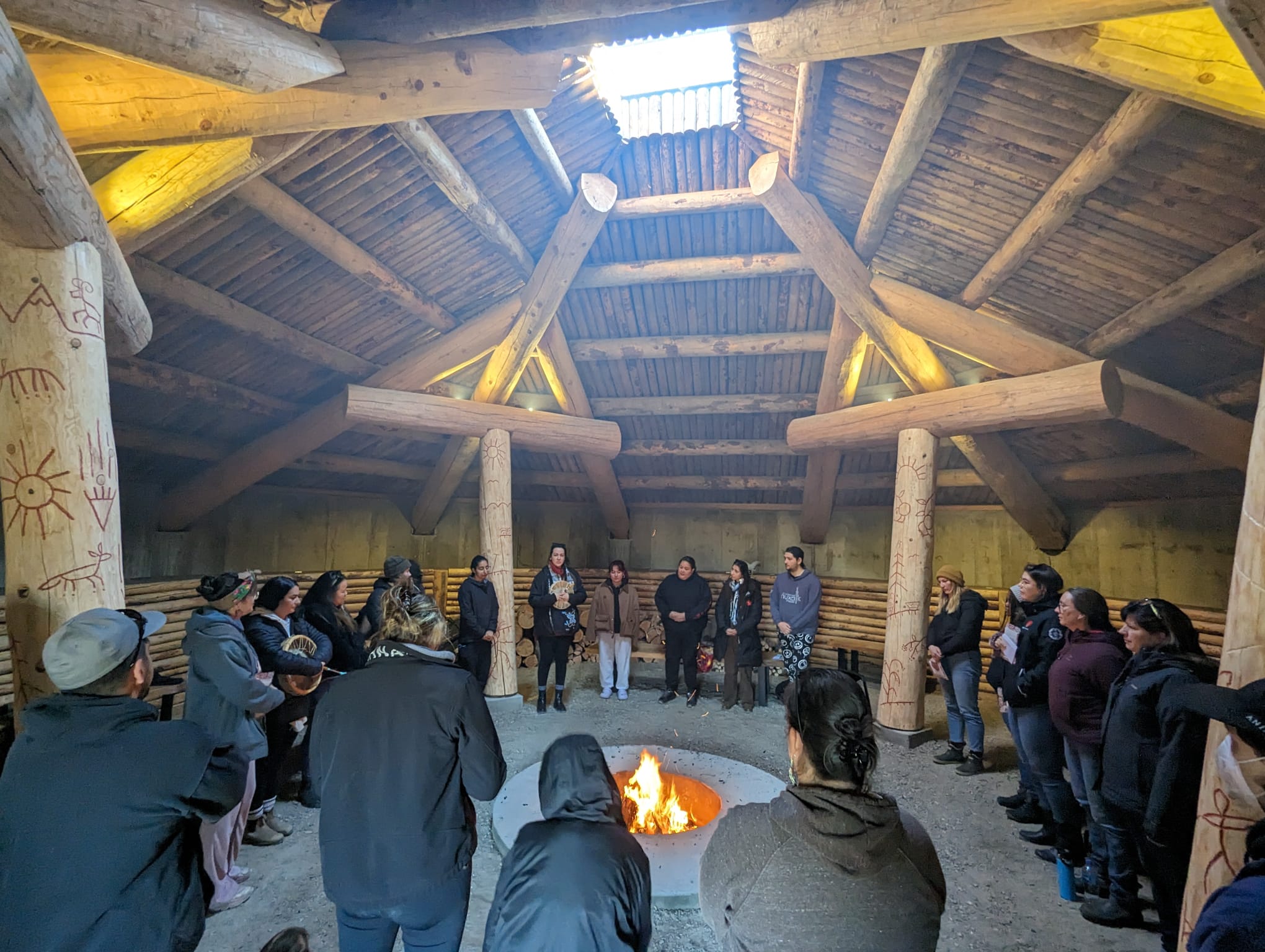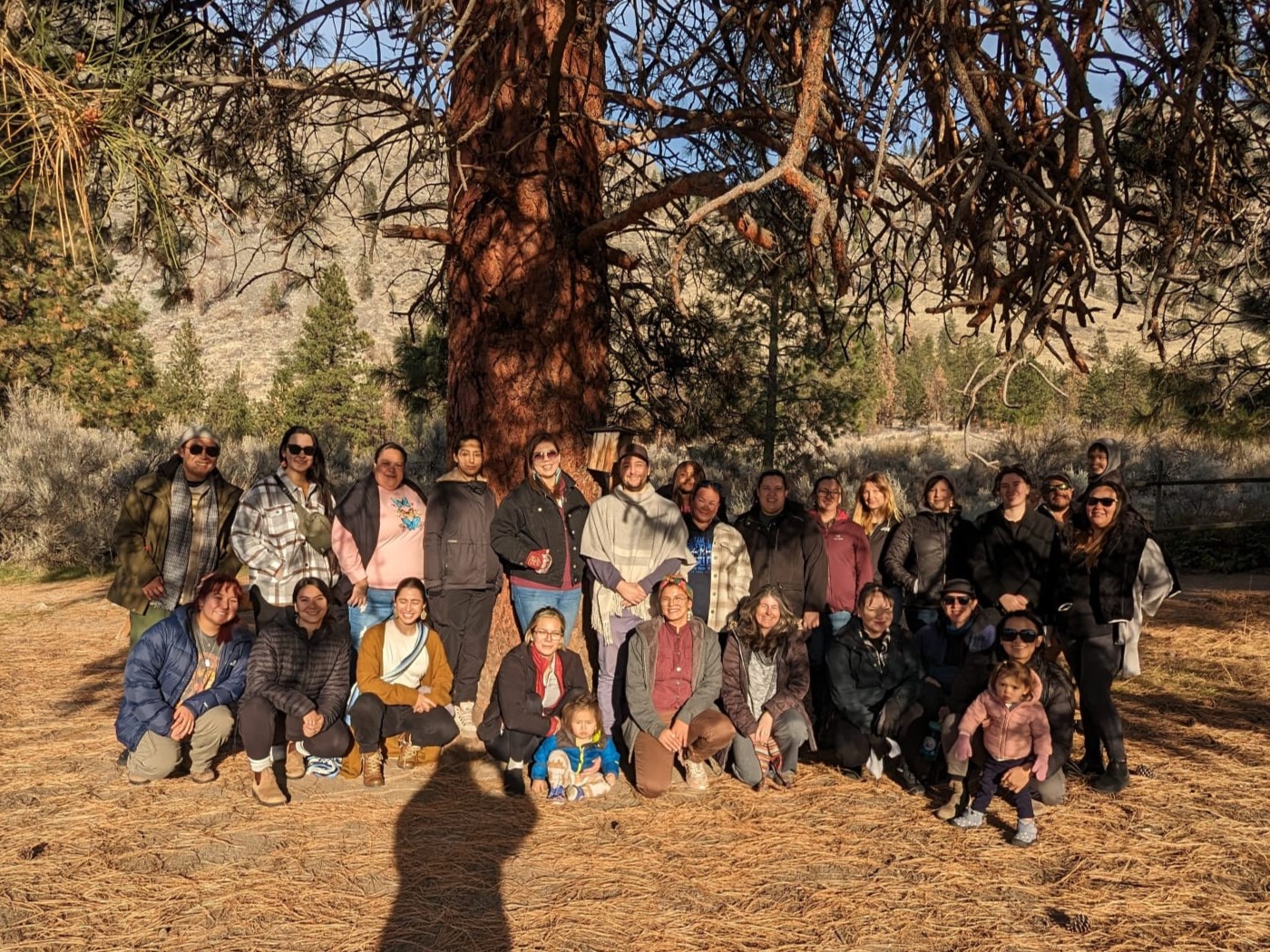
Nurturing RELAW’s Roots: Standing up Indigenous Law
After decades of West Coast Environmental Law working with First Nations, grounded in their own laws, the RELAW (Revitalizing Indigenous Law for Land, Air and Water) Program was created in 2016 in response to increased demand for Indigenous law-based solutions to contemporary problems. RELAW has now grown to become West Coast’s biggest program, with eleven (11) environmental and Indigenous rights lawyers (aka RELAWyers) and one (1) RELAW Coordinator, who work alongside Indigenous partners on researching, applying and enforcing Indigenous law.
RELAW has witnessed a lot of change in the last eight years. In light of this, we – the RELAW team – are reflecting on the growth of RELAW by celebrating with this reflection and a reminder of our new film: Nurturing RELAW's Roots: Standing Up Indigenous Law.
What is the RELAW Program? RELAW Projects & our Co-learning Program
RELAW has two major components:
- RELAW Projects: Indigenous nations or organizations enter into Learning Partnership Agreements with RELAW, with access to free legal services to support them in Indigenous law-based strategies to move their visions forward.
- Co-learning Program: RELAW hosts a year-long program of 3 retreats for RELAW Project partners and like-minded individuals, to share back some of our learnings and create a network of supportive co-learners. ‘Co-learners’ are nominated by their communities or the Nations they work alongside.
The RELAW Lens:
Principles of Safety, Respect and Inclusion in the Co-learning ProgramThe intention of the RELAW Principles is to guide a safe, inclusive and respectful RELAW Network, for RELAW Team members and RELAW Co-learning Cohorts now and in the future. We recognize that learning and un-learning is an ongoing process, and we welcome all those who have an openness to learning, listening and contributing to new ideas or ways of thinking / being, and decolonized ways of gathering. As you read and reflect on the RELAW Principles, please be mindful that the following Principles will be expected within the RELAW Co-learning Program.
Through RELAW Projects (pro-bono legal services) and the training we offer in our Co-learning Program, our awareness, strategies, expertise and advice continue to strengthen. Through the RELAW Co-learning Program, participants engage in a series of immersive retreats over the course of one year, to connect with each other and learn about approaches to applying and enforcing Indigenous law. The retreats are an Indigenous-centric space, aimed to normalize conversations about Indigenous law, and share strategies, challenges and successes to learn from one another.
The growing spaciousness of the retreats allows co-learners and the RELAW team to connect with one another. At our retreats, we share stories, food, medicine, art and song, all grounded in a space of centering and revitalizing Indigenous law. That’s why we host RELAW retreats – a space where co-learners who are already working to revitalize the laws of their own Nation, or the Nation they work for, can access some of this knowledge and apply it to their own projects. Equally as important, co-learners can deepen ties with neighbouring and/or far away Nations to build solidarity in this challenging work.

Fort Nelson, BC. September 2016.
As lawyers who are participating in the global resurgence of Indigenous law, we wanted to reflect on our learnings from the past 8 years.
How has the delivery of RELAW retreats shifted over the 8 years? Why are they important?
Rayanna Seymour-Hourie: The curriculum and the team delivery has strengthened in response to the feedback we receive from our co-learners and cohorts every year. As RELAW’s Manager, I try my best to lead RELAW in Weweni bimoseyan – walking carefully (Anishinaabemowin) – due to the preciousness of showing up for the Nations we partner with.
Gavin Smith: We tailor each in-person retreat to better recognize the role of the host Nation and its territories in shaping the learning. In keeping with this shift, the RELAW program has continually strengthened its emphasis on the on-the-ground aspects of supporting Indigenous law revitalization. This has been reflected in prioritizing long-term relationships with Indigenous Nations to allow for the in-depth work necessary to support Indigenous law application.

RELAW Retreat Indigenous Law in Action, trip to Wah-nuh-jus Hilth-hoo-is (Meares Island), June 2023 (Tofino, BC).
How do you show up as a RELAWyer?
Shawn Smith (they/them): I have been attending the RELAW retreats since 2017, first as a co-learner and now as one of the lawyers on the RELAW team. I have witnessed the changes over the years responding to the collective wisdom of the RELAW team and co-learners, allowing the program to grow in beautiful ways. My focus as a RELAWyer is to ensure that the co-learning space is welcoming, nourishing and accessible to everyone who wants to be a part of it. I am comforted by the newly developed RELAW lens and our renewed reflections on how we want to be together as each co-learning community.
Shelby Lindley: Part of my role as a mother is to consider the perspective of other caregivers and how we can make our spaces inviting and welcoming for our youth. In keeping with these teachings, I have included my daughters in these conversations and have brought them along to most of our RELAW retreats. As time goes on, we are losing our knowledge holders and language speakers, and finding ways to ensure that their experiences and teachings are carried on is also a very important consideration in my day-to-day work.

RELAW Retreat 1 Indigenous Law in Story, Osoyoos, November 2023.
Societal Change
The broader societal conversation about Indigenous law recognition has started to shift with landmark cases from Delgamuukw to Tsilhqot’in as well as Canada’s (and BC’s) plans to implement UNDRIP (the United Nations Declaration on the Rights of Indigenous Peoples). We have seen a shift in the broader conversation, from asking “what” or “why should we recognize/learn Indigenous law?” to asking “how?” – How may we implement Indigenous law? How may we bridge between Indigenous law and Canadian law (legal pluralism)?
Indigenous legal orders have been implementing their laws continuously, despite adverse colonial policy and systemic oppression. Still, Indigenous nations have brought their laws into a diversity of spaces, like the boardroom and courtroom. The cohorts each year collectively share how their nations have chosen to express their laws, including implementing Indigenous-led assessments for resource projects, and establishing Indigenous Protected and Conserved Areas (IPCAs) grounded in Indigenous law. In supporting our partners, we are committed to constant reflection on the best practices in some of the most important work of our time – applying and enforcing Indigenous law.
As a RELAWyer, what have you seen shift in the Indigenous law arena?
Estella White - ḥin̓ačačišt: I think the most notable shift that I’ve seen over the years, particularly in the realm of IPCAs, has been the shift away from having to prove why Indigenous laws matter, to a broader understanding that yes, of course they matter, yes they are valid, and these are all the ways that we are building those laws up to protect the land, air, water, and all beings.
Eugene Kung: Indigenous nations are leading the way, doing the hard work of revitalizing and expressing their laws in a way that governments and corporations simply cannot deny, as they have done in the past. So much has changed in the world of Indigenous law revitalization in that time: you can now get an Indigenous law degree (JID) from the University of Victoria. We hold up the work of our friends at the Indigenous Law Research Unit.
Navjot Jassar: Indigenous laws need to be accessible beyond those who want to be lawyers. In law school, I had the privilege to be introduced to not only Canadian law, but also some Indigenous Legal Orders, the original and oldest laws to govern these lands. I learned how to apply different methodologies created by Indigenous law scholars to articulate Indigenous laws in a contemporary form.

RELAW Retreat 1 Indigenous Law in Story, Osoyoos November 2023.
Closing thoughts: Moving forward in Standing Up Indigenous Law
The RELAW work changes those who are a part of it, both co-learners and our lawyers. It is a space for supporting our personal and professional growth as lawyers and holding space for RELAW co-learners and partners’ legal traditions.
I have been reminded often by elders in my own community and others that standing up our own laws is vital and that we must prioritize passing this knowledge down to our younger generations who will one day take over this work. The first RELAW retreat I attended in 2018 was a calling for me to return to my roots. I was new to work that was centred around Indigenous law revitalization and have been growing and expanding my understanding of what this means ever since. – Shelby Lindley
Indigenous law revitalization will continue to strengthen, shift, and change. The RELAW team will continue to support RELAW partners in upholding their sovereignty and self-determination. As we continue the work of Indigenous law revitalization, it is inspiring to see the work from past cohort co-learners who are researching, applying and enforcing their own laws, declaring IPCAs and other forms of expressing Indigenous law. Our RELAW cohorts continue to be a place where Nations and members can come together for support and guidance for the amazing work being done.
Indigenous law revitalization is not just for Indigenous people. It is fundamentally a place-based approach, that benefits everyone who lives in that territory in the long run. We believe that the revitalization of Indigenous laws and worldviews will be critical for navigating the climate and biodiversity crises, starting at the local level, and eventually shaping state and international law.
Top photo: RELAW Retreat 1 Indigenous Law in Story, Spotted Lake, Osoyoos, November 2023
Photos provided by the West Coast RELAW Team
